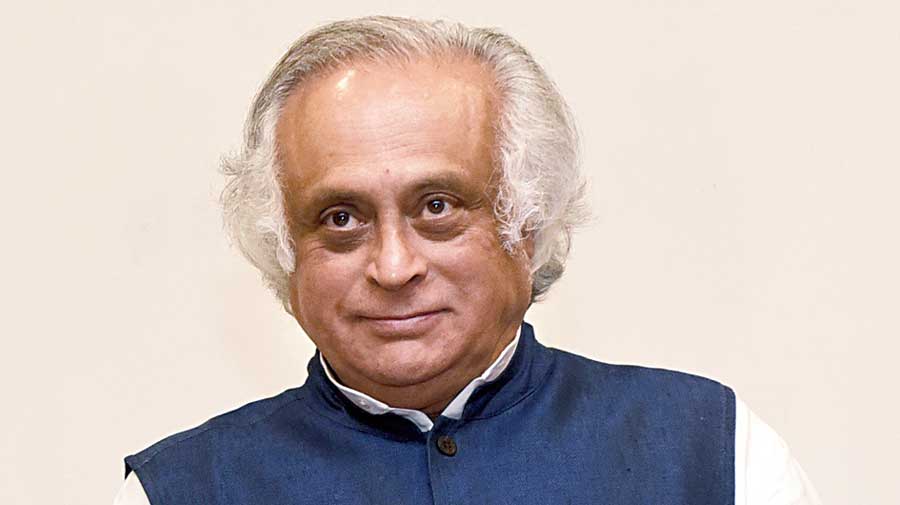Members of the Congress, the BJD and the TMC on Monday gave dissent notes to the Joint Committee of Parliament on the Personal Data Protection Bill after the panel adopted its report at its meeting here.
Congress leader Jairam Ramesh said he was compelled to submit a detailed dissent note on the bill as his suggestions have not been accepted and he was unable to convince members of the panel. From the TMC, MPs Derek O' Brien and Mahua Moitra submitted a dissent note, alleging the bill lacks adequate safeguards to protect the right to privacy of data principles.
Other Congress MPs who have submitted dissent notes are Manish Tewari, Gaurav Gogoi and Vivek Tankha. BJD's Amar Patnaik has also submitted a dissent note on the bill.
The Personal Data Protection Bill, 2019, was referred to the Joint Committee of Parliament (JCP) for scrutiny before it is taken up by Parliament for consideration and passage.
The report on the bill was delayed by the panel as its former chairperson Meenakshi Lekhi was elevated as a minister and a new chairperson of the committee was appointed.
Ramesh, a former Union minister, lauded the democratic manner in which the committee functioned under the chairmanship of P P Chaudhary for the past four months.
"Finally, it is done. The Joint Committee of Parliament has adopted its report on the Personal Data Protection Bill, 2019. There are dissent notes, but that is in the best spirit of parliamentary democracy. Sadly, such examples are few and far between under the Modi regime," he said after submitting his dissent note on the proposed legislation.
The Congress leader said he is compelled to submit the note as his suggestions have not been accepted and he is unable to convince members.
"But that should not detract from the democratic manner in which the committee has functioned. Now, for the debate in Parliament," he said on Twitter.
The Trinamool Congress (TMC) MPs, who are part of the panel, described the bill as "Orwellian" in nature and raised questions on the functioning of the committee.
In the dissent note filed with Chaudhary, they have alleged that the committee rushed through its mandate and did not provide sufficient time and opportunity for stakeholder consultations, sources said.
O'Brien and Moitra also said multiple meetings were held during the COVID-19 pandemic, making it difficult for those outside Delhi to attend.
The MPs also said they oppose the bill for lack of adequate safeguards to protect the right to privacy of data principles, the sources said.
In the note, the two MPs have also opposed the committee's recommendations for inclusion of non-personal data within the proposed legislation, they said.
Ramesh, who is also the chief whip of the Congress in Rajya Sabha, in his dissent note said he had suggested amendments to Section 35, which is the most crucial provision of the bill as well as to Section 12.
He has argued that Section 35 gives almost unbridled powers to the central government to exempt any government agency from the entire Act itself.
"Under the amendment I had suggested, the central government will have to get Parliamentary approval for exempting any of its agencies from the purview of the law. Even then, the government must always comply with the bill's requirement of fair and reasonable processing and implementing the necessary security safeguards," Ramesh said.
"This would bring about greater accountability and transparency, but even that was not found acceptable. Section 12(a)(i) creates certain exceptions for governments and government agencies from the provisions of consent," he said.
Ramesh has in his note said that the JCP's report allows a period of two years for private companies to migrate to the new data protection regime, but governments and government agencies have no such stipulation.
He argued that the design of the Personal Data Protection Bill, 2019, assumes that the constitutional right to privacy arises only where operations and activities of private companies are concerned.
Governments and government agencies are treated as a separate privileged class whose operations and activities are always in the public interest and individual privacy considerations are secondary, the Congress leader said.
"The idea that the August 2017 Puttaswamy judgment of the Supreme Court is relevant only for a very, very, very tiny section of the Indian population is, in my view, deeply flawed and troubling and is one that I totally reject," he asserted in his note.











